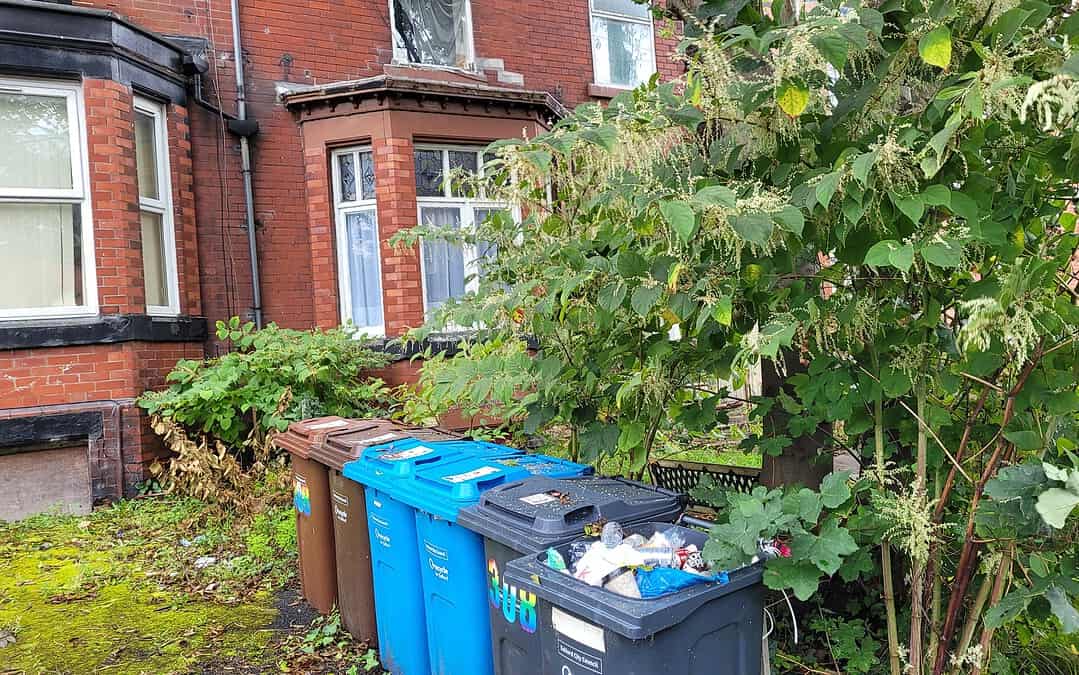Sometimes people ask me? Do sellers have to disclose Japanese knotweed?

In the United Kingdom, sellers are legally required to disclose the presence of Japanese knotweed on a property. Failure to reveal the presence of Japanese knotweed on a property. It can be considered a breach of the Consumer Protection from Unfair Trading Regulations 2008. These regulations prohibit misleading actions and omissions in the course of commercial practice. That is likely to cause the average consumer to take a transactional decision he would not have taken otherwise.
It is considered a “problematic invasive non-native species. It can cause significant damage to property and neighbouring properties. Making it difficult to obtain a mortgage or insurance on the property. Therefore, it is recommended that sellers disclose the presence of Japanese knotweed on a property to potential buyers.
Moreover. It’s important also to note that if a seller is aware of Japanese knotweed on their property. They have a legal responsibility to prevent it from spreading to neighbouring properties. This means that if the Japanese knotweed is not treated or contained. The seller could be liable for any damages caused by the plant.
When selling a property in the UK that is affected by Japanese knotweed. The seller is required to complete a TA6 form.
It is part of the property information questionnaire. The TA6 form includes a specific question about Japanese knotweed. It asks whether the seller is aware of the presence of Japanese knotweed on the property or in the surrounding area. If your answer is yes, the seller must provide further details and indicate whether a management plan is in place. The purpose of this form. This is to ensure that potential buyers are fully informed about any Japanese knotweed issues before making an offer on the property.
Furthermore, in the UK, if a seller fails to disclose the presence of Japanese knotweed on their property to the buyer. It can have serious consequences. The buyer may take legal action against the seller for misrepresentation or breach of contract. Which could result in significant financial damages.
It is classified as a controlled waste under the Environmental Protection Act 1990.
Additionally, Japanese knotweed is classified as controlled waste under the Environmental Protection Act 1990, which means that it must be disposed of in a specific way. Further, Suppose the buyer discovers Japanese knotweed on the property after the sale, and the seller did not disclose it. In that case, they may report the matter to the local council, which could result in enforcement action against the seller. Consequently, the cost of removing Japanese knotweed can be very high if enforcement action is taken. The seller could be required to pay for removing it from their property and any neighbouring properties affected by its spread.
Failing to disclose the presence of Japanese knotweed when selling a property can result in legal and financial consequences for the seller. Sellers need to be honest and transparent about Japanese knotweed issues to avoid future legal and economic problems.
It Is Best to put yourself in the buyer’s position. Would you want to be duped into buying a property with Japanese knotweed?
Affordable and Effective Japanese Knotweed Management: Our 5-Year Treatment Plan
Dealing with Japanese Knotweed can be daunting and expensive, especially if it involves excavation and disposal at specialist landfill sites. However, if the affected area can remain undisturbed, we offer a cost-effective and less disruptive solution: a comprehensive 5-year treatment plan priced at just £1,850.00 (covering up to 20 square meters, VAT not included).
What Does the 5-Year Treatment Plan Include?
Intensive Herbicide Treatments (Years 1-3):
- Our approach involves a three-year course of targeted herbicide applications. We apply herbicides directly to the leaves and inject them into the stems. This method ensures the herbicide penetrates the plant’s vascular system, blocking the production of amino acids vital for its growth and survival. Gradually, the plant will starve and die.
Rigorous Monitoring (Years 4-5):
- Following the herbicide treatment, we monitor the site for two additional years to ensure complete eradication of the knotweed. Our vigilance during this phase ensures that the plant does not regrow.
Comprehensive Survey and Reporting:
- Initially, we conduct a detailed Japanese Knotweed survey to identify the precise location and assess the risk. Our report outlines the associated treatment costs and provides a recommended management plan. This plan is essential for homeowners and property developers who need to maintain their land free from this invasive species.
Certification of Eradication:
- Upon successful completion of the treatment and no observed regrowth for two consecutive growing seasons, we issue a completion certificate. This certificate is a crucial document that can aid in the management of property values and regulatory compliance.
Flexible Payment Options:
Understanding the financial burden this might pose, we offer an installment plan. Payments can be spread over the initial three years of treatment. Invoices are issued post-treatment in June and September, at £308.33 each.
Special Offer on Initial Survey and Report:
Should you decide to proceed with our treatment plan, the initial survey and the detailed report are on us. However, a fee of £180.00 will apply if you choose not to pursue treatment after our initial assessment.
Why Choose Our Treatment Plan?
Our 5-year treatment plan not only saves you significant costs compared to excavation but also ensures that your property remains disturbance-free and ecologically stable. With our expertise and systematic approach, you can rest assured that Japanese Knotweed is effectively managed and eradicated from your property.
